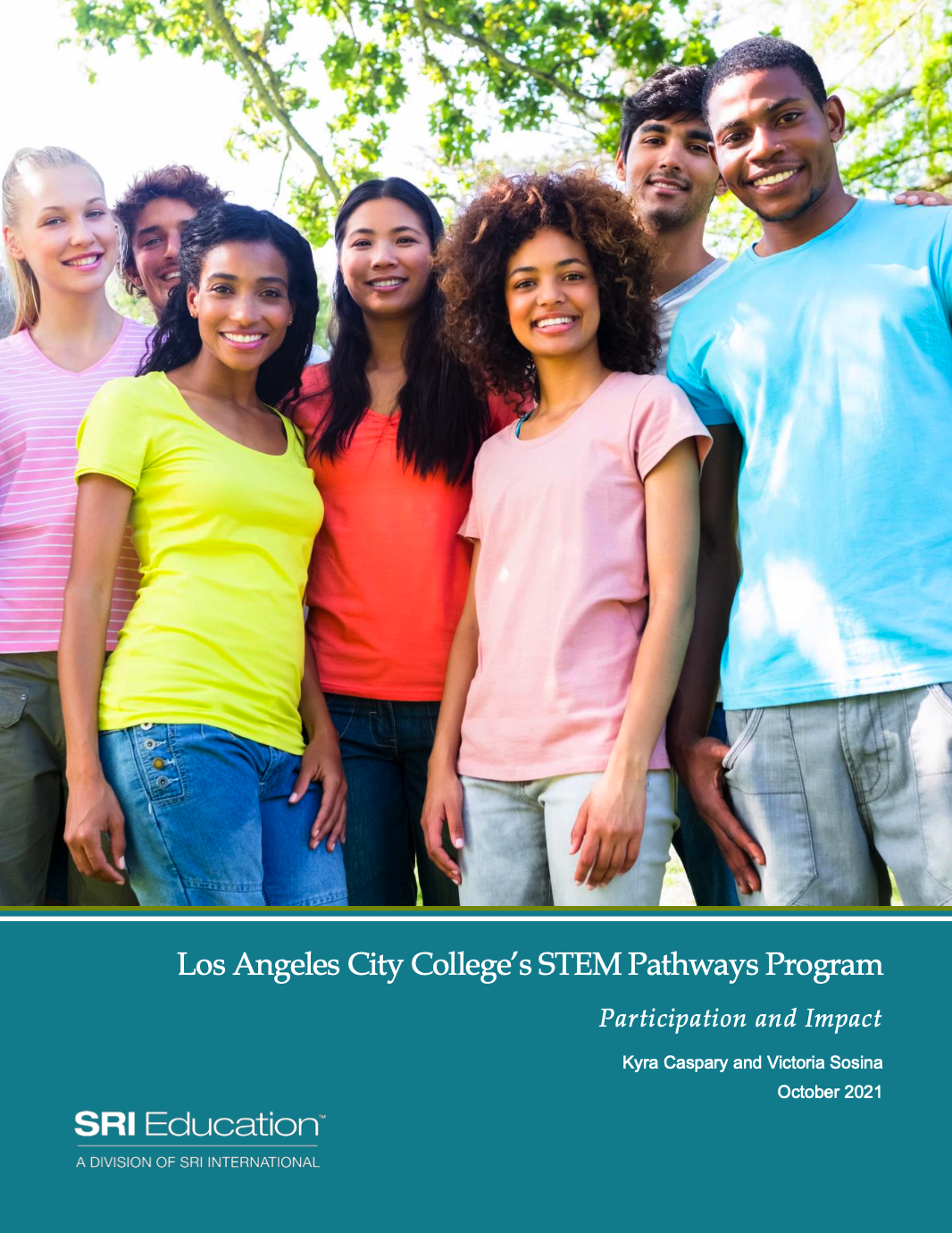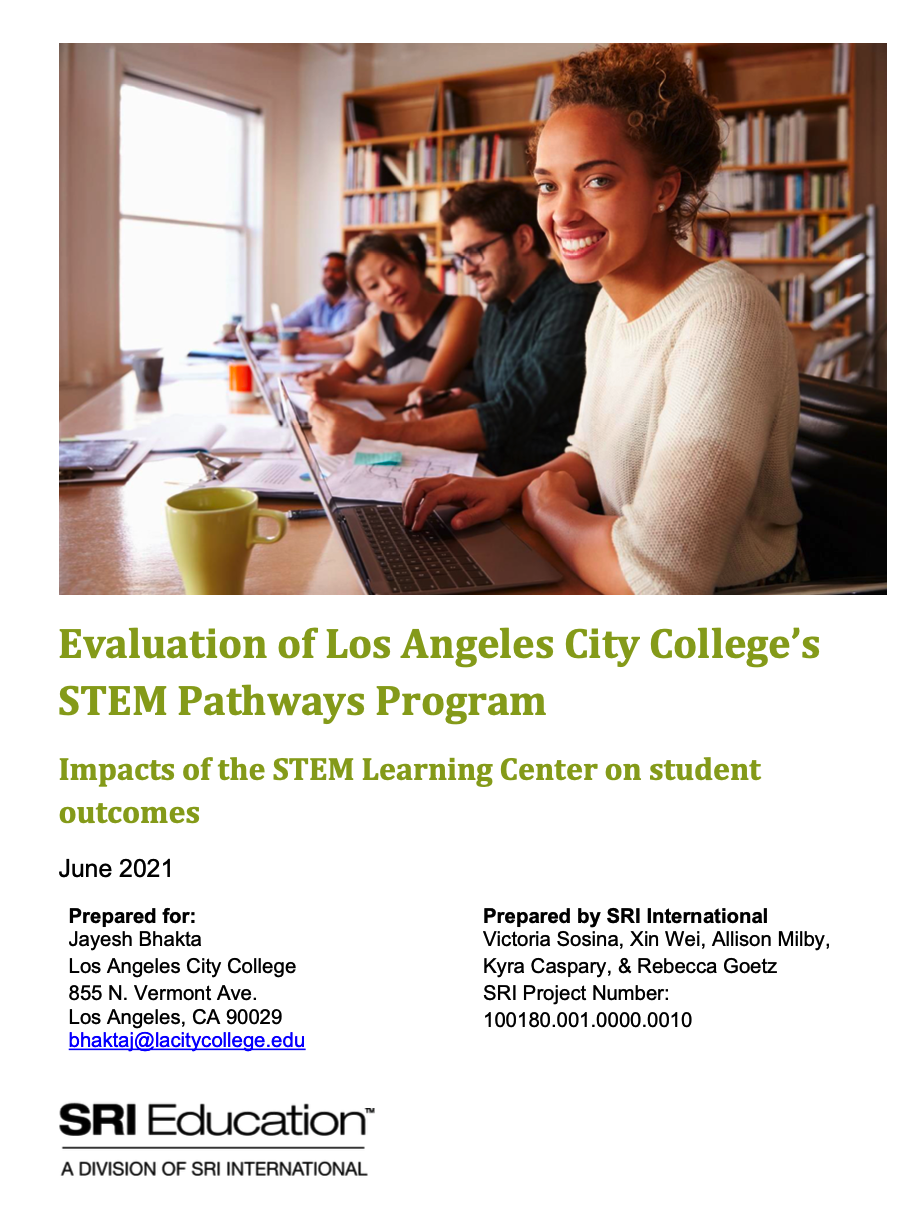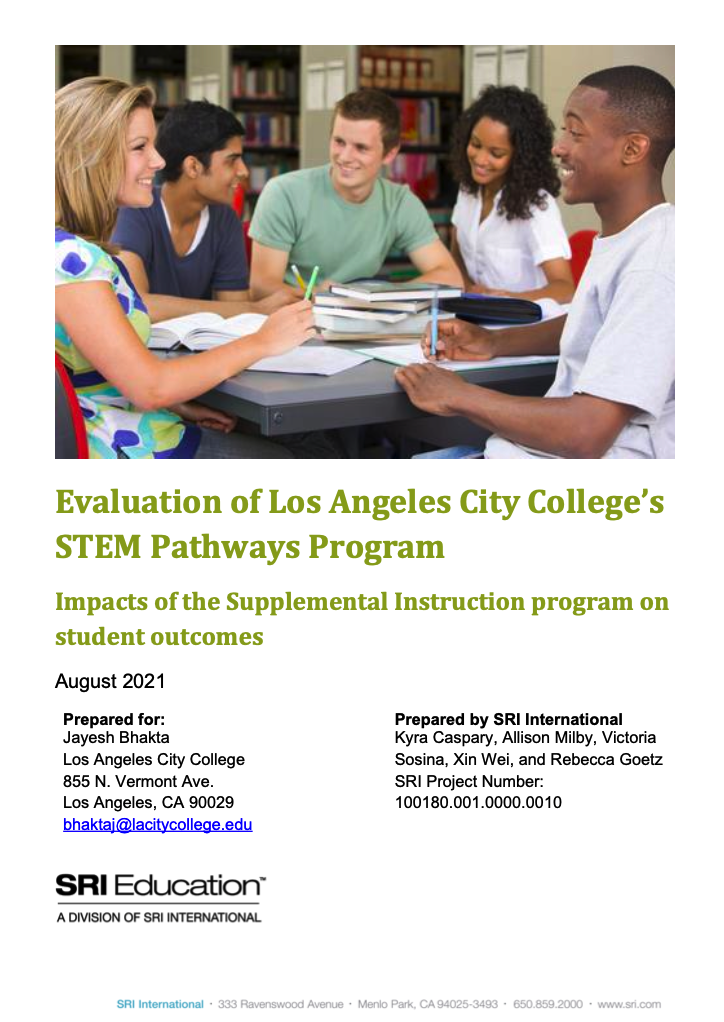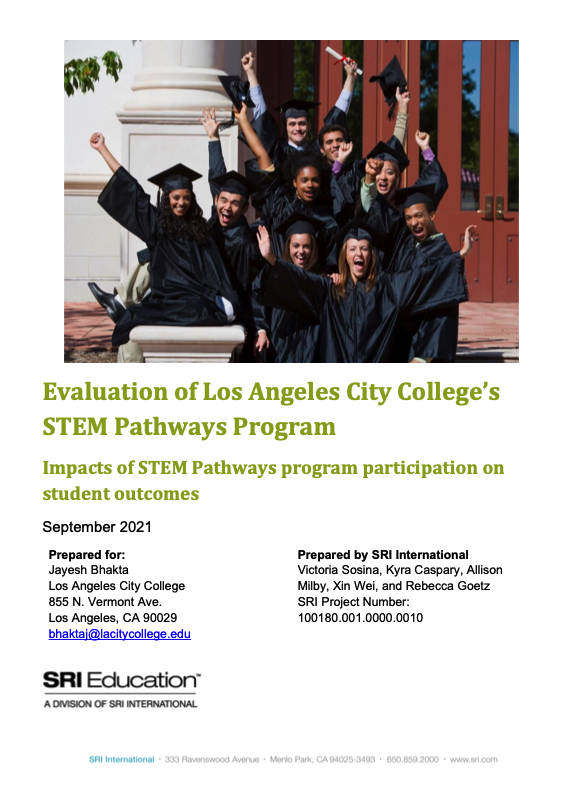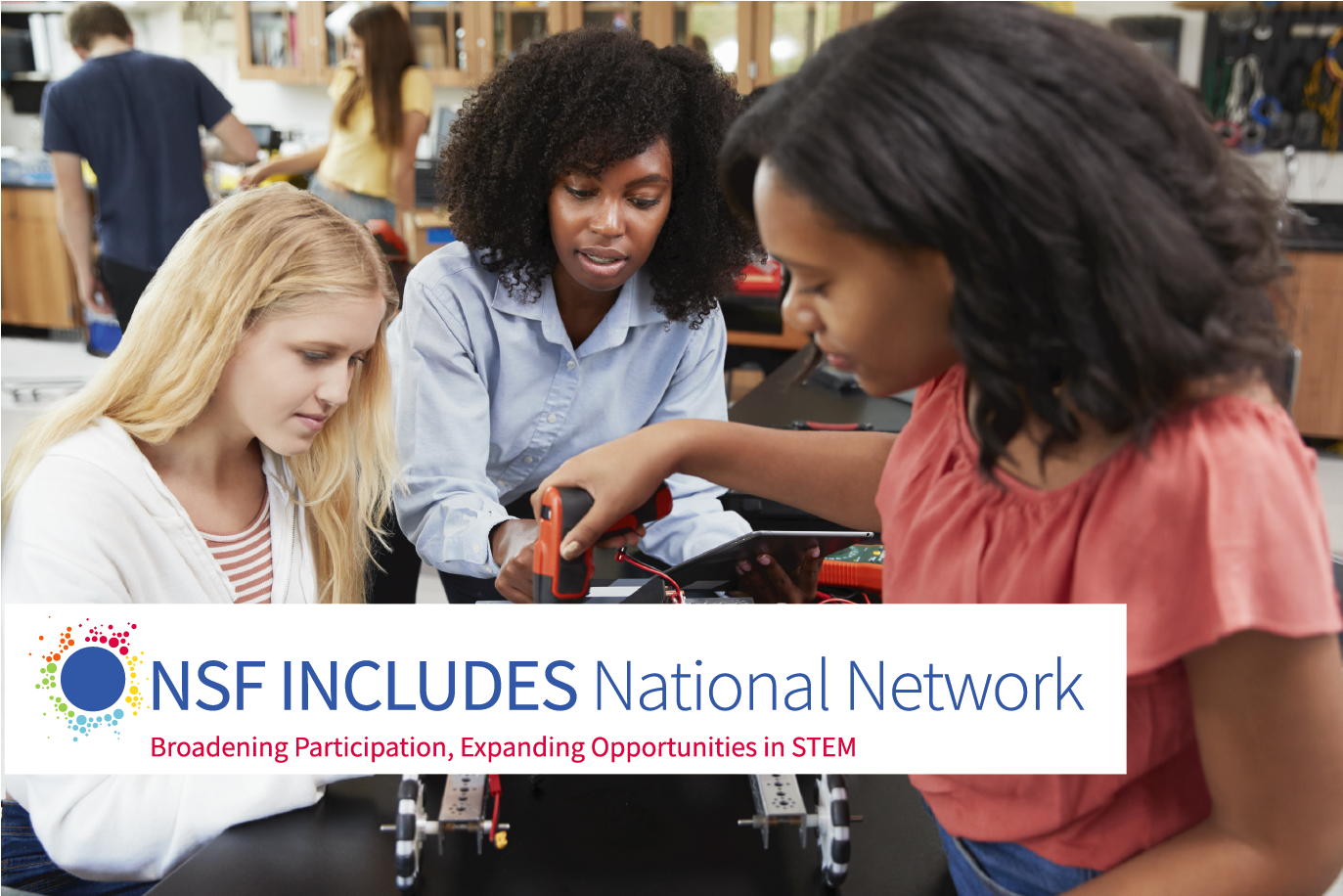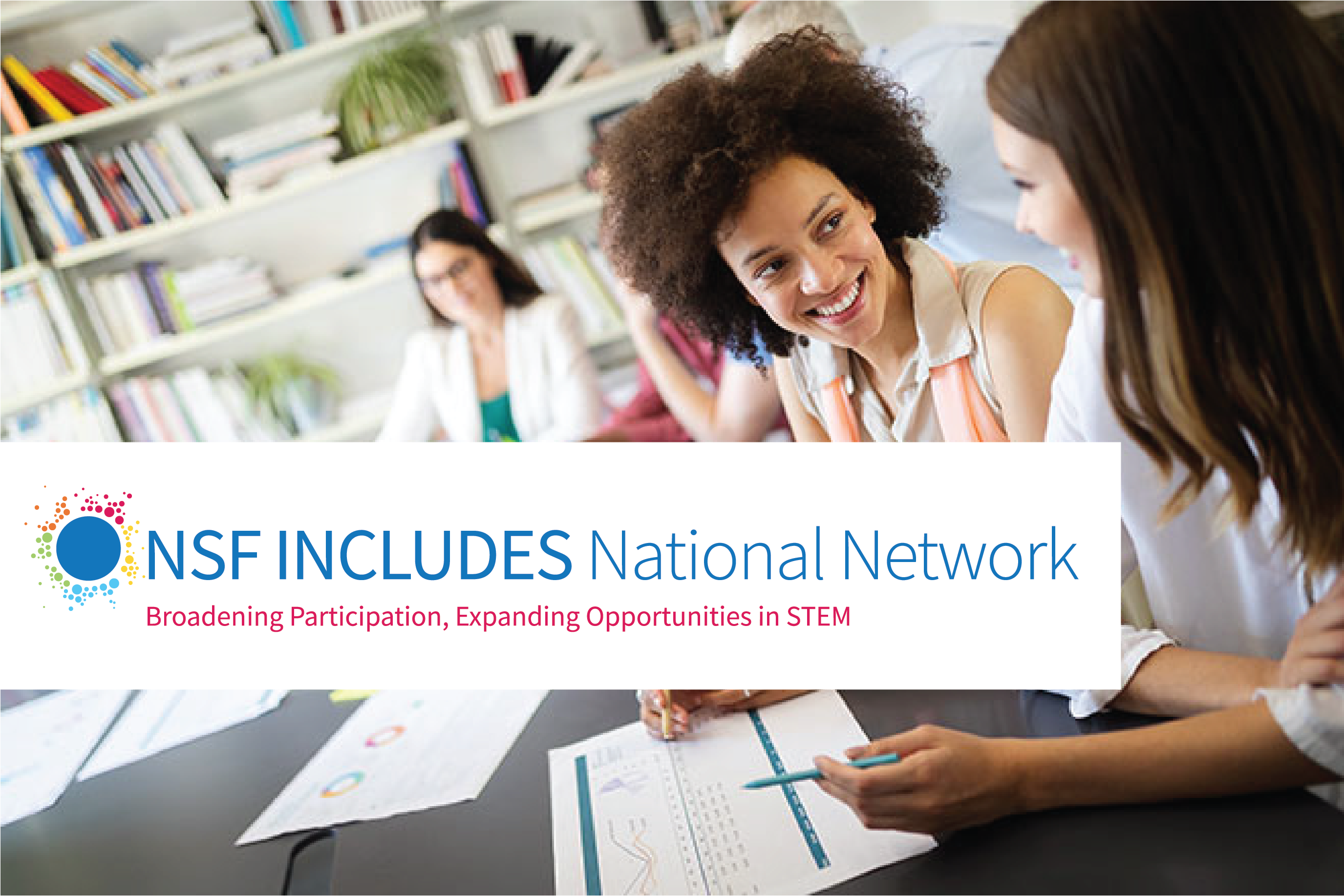To understand the impact and implementation of the CCP project, CFA engaged SRI to conduct an independent evaluation of the project. This report presents findings from SRI’s comprehensive evaluation, offering insights into the project’s outcomes, the conditions that supported or hindered implementation, and key lessons to inform future efforts to strengthen career-connected learning pathways across … Continue reading Evaluation of the Career Connect Pathways Project | Final Report
What do high school graduates need to know and be able to do to be prepared for college and career? This is the fundamental question that state policy makers confront when determining minimum high school graduation requirements or assessing whether these requirements need to change to meet the needs of a rapidly evolving economy.
One objective within our Equitable Pathways to College and Career team is to highlight projects and initiatives that weave equity-driven practices into the fabric of our work. One such initiative is supported by the National Science Foundation (NSF)—NSF’s Eddie Bernice Johnson INCLUDES Initiative (NSF INCLUDES).
Los Angeles City College launched the STEM Pathways program in 2016 to improve STEM degree completion and transfer to 4-year colleges, particularly for low-income and Latinx students. With funding from the U.S. Department of Education, the program offered a variety of supports including Supplemental Instruction (SI), peer tutoring in STEM, a book and technology loan … Continue reading Los Angeles City College’s STEM Pathways Program: Participation and Impact
Los Angeles City College launched the STEM Pathways program in 2016 with funding from the U.S. Department of Education. The intent of the STEM Pathways program was to improve STEM degree completion and transfer to 4-year colleges, particularly for low-income and Latinx students, through a variety of supports. The STEM Learning Center, a drop-in peer … Continue reading Evaluation of Los Angeles City College’s STEM Pathways Program: Impacts of the STEM Learning Center on student outcomes
Los Angeles City College launched the STEM Pathways program in 2016 with funding from the U.S. Department of Education. The intent of the STEM Pathways program was to improve STEM degree completion and transfer to 4-year colleges, particularly for low-income and Latinx students. The program provided a variety of supports including Supplemental Instruction (SI) for … Continue reading Evaluation of Los Angeles City College’s STEM Pathways Program: Impacts of the Supplemental Instruction program on student outcomes
Los Angeles City College launched the STEM Pathways program in 2016 with funding from the U.S. Department of Education. The intent of the STEM Pathways program was to improve STEM degree completion and transfer to 4-year colleges, particularly for low-income and Latinx students. The program offered a variety of supports including Supplemental Instruction (SI), peer … Continue reading Evaluation of Los Angeles City College’s STEM Pathways Program: Impacts of STEM Pathways program participation on student outcomes
Over the past 2 decades, the United States has seen enormous growth in the science, technology, engineering, and mathematics (STEM) fields. This growth has been particularly strong for high skill technician jobs in technology and computer science, which offer a promising path to the middle class for many Americans.
Alternative high schools were originally conceived of as a place where students who were not succeeding in a traditional setting could have their academic needs met. These schools have developed negative stigmas, with the reputation as being credit-recovery factories for students who are off-track to graduate.
College instructors see it all the time. Each semester brings bright students who easily grasp new ideas, but may struggle with assignments or studying for exams. These students can excel when explicitly taught skills to manage their own learning, research conducted by Dr. Omar Faison at Virginia State University has found. If students do not have these skills, online courses can be particularly challenging. With more college courses moving online, students need self-directed learning skills more than ever.
The Center for the Future of Arizona (CFA), in partnership with LeadLocal and Jobs for the Future, is working with school districts in Arizona to increase high-need students’ access to quality career pathways in cybersecurity and computer science. In 2019, CFA received an early-phase Education Innovation and Research grant from the U.S. Department of Education … Continue reading Evaluation of the Career Connected Pathways Project
The NSF INCLUDES Coordination Hub is a 5-year, $10 million grant from the NSF INCLUDES program, a national initiative focused on broadening participation in science, technology, engineering and mathematics (STEM) in the U.S. The program seeks to effectively develop talent nationally – particularly among those in underserved populations – with the goal of enhancing U.S. … Continue reading NSF INCLUDES Coordination Hub




